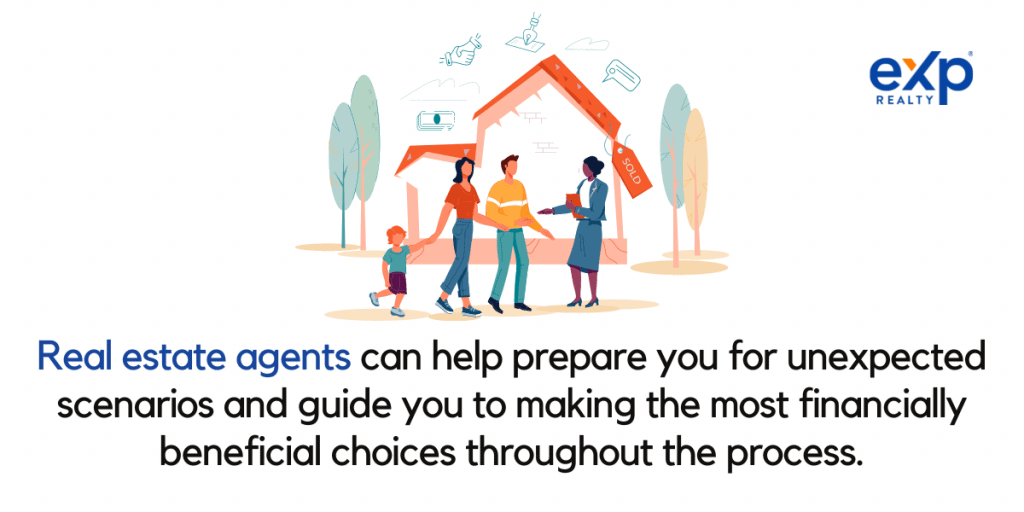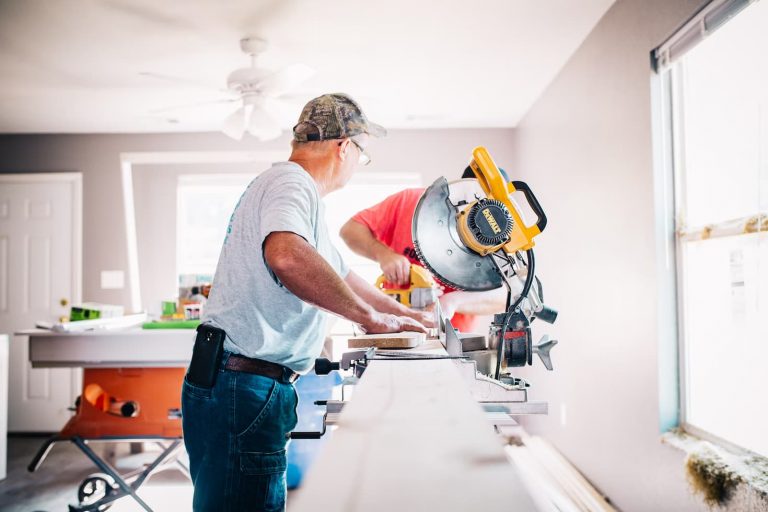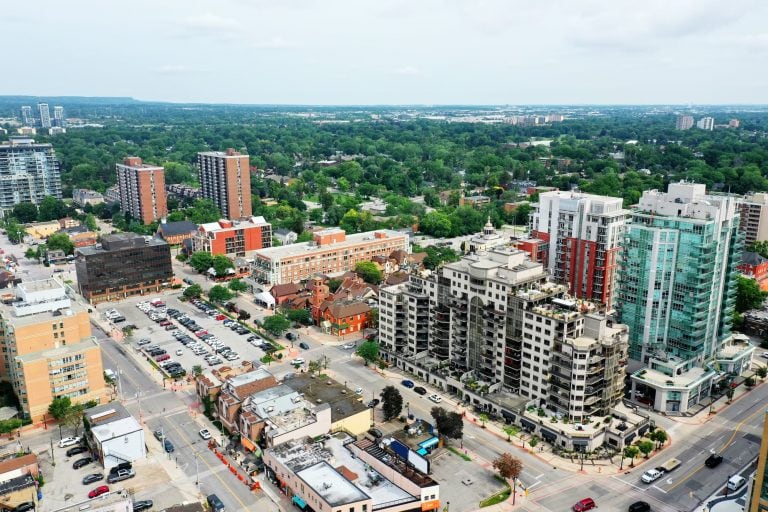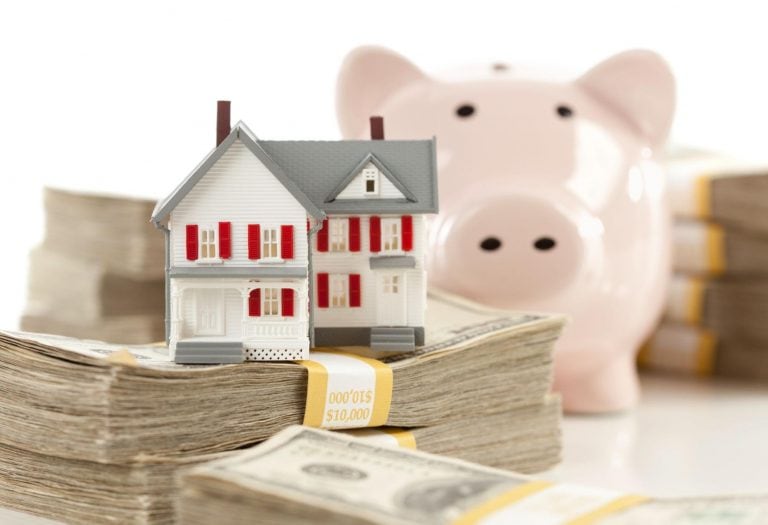Buying a new home can be stressful on its own, but add in the process of selling your current home and it can become overwhelming. When you consider the rules of the real estate market, the financial responsibilities of buying and selling a home, and the high demand for real estate in Toronto and other major Canadian cities, real estate transactions become even more complex.
However, with the right tips and an experienced local real estate agent, it doesn’t have to be that complicated to buy and sell a home at the same time. Keep reading if this sounds like a process that you’re going through or may go through in the future.
Should I Buy or Sell First?
Unless time is on your side it’s unlikely that you will simultaneously close on your new home and close on your old home on the same day. This means you’ll technically end up buying your home first or selling your home first, even if you are going through the process at the same time.
Here are the pros and cons for each of those scenarios:
Pros to Buying First:
- You’ll have a new place when your old one sells
- No temporary rental situation to have to worry about (or pay for)
- You only have to move all of your belongings once
Cons to Buying First:
- You could end up with two mortgages at once
- Possibly having to settle for a lower offer just to sell your home quicker
Pros to Selling First:
- No chance of a double mortgage situation
- Extra funds from selling your home to put into your new one
Cons to Selling First:
- Finding (and paying for) temporary housing if you don’t have somewhere to stay
- You may feel rushed to buy a new home and settle for one that you don’t really love
Tips for Buying and Selling at the Same Time
The pros and cons are worth weighing, but sometimes the timing works out where you have no choice but to buy and sell simultaneously. When determining how to buy and sell a home at the same time, here are some tips to consider:
Study Your Current Real Estate Market
When buying and selling a home at the same time, you have to understand the real estate market in both the area you are selling in and the area you’re moving to. First, you’ll need to determine if you are in a buyer’s or seller’s market. When buying and selling a home at the same time, it can often feel like a catch-22. While you may have the upper hand on buying your home if you’re in a buyers market, you will then have a harder time selling your current home, and vice versa.
To navigate this process smoothly, consider the advantages you have based on your current real estate market (lower home prices for buyers, higher demand for sellers, etc.) and prepare to compromise on your weak points (listing for a lower price to sell quicker, letting go of certain home features that limit your home search, etc.).
What To Consider When Selling:
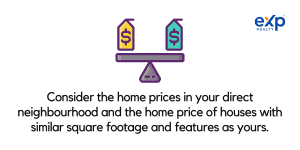
What To Consider When Buying:
From a buyer’s perspective, you’ll want to know how much homes in your target area are worth to ensure that a seller isn’t pulling the wool over your eyes, especially in a seller’s market. Do some research on the homes for sale in your neighbourhood, and determine how much room you have for negotiation. Luckily, if you’re selling at the same time, it won’t be your first time buying a home, so you’ll already have some experience. However, in ever-changing markets like Vancouver or Calgary, it’s always safest to collaborate with a trusted real estate agent who knows the area and market conditions, which leads us to our next tip.
Get Help From a Local Real Estate Agent
We cannot recommend this step enough, especially when trying to buy and sell a home at the same time. Doing market research and negotiating transactions can be done on your own, but real estate agents will have experience, resources, and market reports that you don’t. Many agents have worked with clients who have bought and sold homes at the same time, which means they can help prepare you for unexpected scenarios and guide you to making the most financially beneficial choices throughout the process.
In addition to helping you sell, a real estate agent can also help you determine which neighbourhood or city is ideal for you to move to, if you haven’t decided where to relocate to yet. Geographically, Mississauga vs Toronto may not seem that different, but from a real estate market perspective, they can be worlds apart. Real estate agents can also help you decide whether you want to downsize or upgrade your home depending on your circumstances and the conditions of the market.
Figure Out Your Financial Ability to Buy and Sell at Once
One of the most important factors to consider when buying and selling your home is whether or not you have a down payment saved before selling. This financial aspect can change the urgency of the buying and selling process, so it’s best to have a firm grasp on what you can afford before even listing your home.
Of course, sometimes you get a new job offer or have a family circumstance that gives you no choice but to pack up and move. In these cases, you’ll need to sell your home before you have enough funds for a down payment, and you may need to consider a contract contingency or apply for a bridge loan.
Contract Contingency
Otherwise known as a conditional sale, contract contingency states that the purchase of your new home depends on the sale of your existing home. You settle a contract contingency with the seller of the home, and they must agree to wait for your current home to sell before closing. This is dangerous territory in a seller’s market, as the seller may just go with another buyer’s offer to avoid waiting for closing. For a contract contingency to work well, the seller must be convinced that you have the right price and that your house will sell quickly. The best case scenario for this is with a seller whose home has been on the market for a while and hasn’t gotten many offers or the buyer with a contingency offer already has their home under contract and is already through the due diligence/option period.
Bridge Loans
An alternative option to contract contingency is to apply for a bridge loan. In this case, the bank will lend you, the buyer, a sum of money to cover the interval between two transactions. With this option, you’ll be able to pay a down payment on your next home while waiting for your current one to sell. Once you have collected the profit from selling your house, you can use the funds to pay back the loan and any accrued interest.
It’s important to note that these loans can be difficult to qualify for, as the banks typically give them to those with the best credit scores and lowest debt-to-income ratios. If you’re considering applying for a bridge loan, take some time to check out your credit score and current finances to put you in the best position to receive the loan.
Have a Backup Plan in Case You Need Temporary Housing
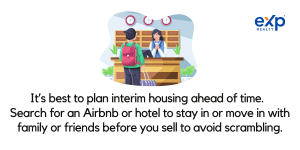
Pro Tip: It’s a wise choice to look into storage facilities before selling your home as well. Even if you find temporary housing, it’s not likely there will be room for all your belongings, so prepare to have somewhere to store them until you buy and move into your new home.
Strategically Coordinate the Time and Date of Your Closing
If you can manage to coordinate the time and date of closing, buying and selling your home at the same time can run even more smoothly. You may not be able to control when your home sells or when you can close on the perfect home, but you can make smart decisions that will speed up the process when those things do happen.
For example, when buying and selling a home at the same time, the faster you close on the home you’re selling, the quicker you’ll have the funds to buy your new home. With that said, try to schedule the closing of your home at the beginning of the week and within the morning hours. Banks can take up to three days to transfer funds, so try to steer away from closing on Thursday or Friday to avoid having to wait over a weekend for the sale to be finalized. Scheduling your closing early in the week gives you plenty of buffer in your schedule to close the deal as planned.
How To Buy and Sell a Home at the Same Time
Whether you’re in a mega city like Toronto or a small town like Flin Flon, buying and selling a home at once can feel like an impossible task. We hope that this article helped you feel more comfortable approaching the process and gave you some ways to prepare to buy and sell your home at the same time. Our number one tip is to find a local real estate agent to help you out, and along with the questions you ask before you hire, ask them if they have ever helped a client buy and sell at the same time before.



